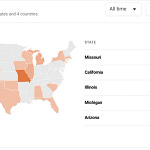Trey Herweck, pastor at Refuge Church in St. Charles, MO, joins me to talk about living in Interesting Times. We are using the most recent article from The Embassy as our jumping off point. Here is an excerpt:
View
Although it is often mislabeled as a Chinese curse, “May you live in interesting times” is of English origin. It appears in British diplomatic circles during the late 19th and early 20th centuries. While there is no equivalent Chinese saying, they (at least according to Wikipedia) do have this: “Better to be a dog in times of tranquility than a human in times of chaos”, which is a bit more, well, interesting. At any rate, we live in interesting times, and we understand the impulse to call that a curse. Our times are in turns unpredictable (except when they are all too predictable), anxiety provoking, polarizing, angry, fearful, dark, and at times, violent. It is the last one that is catching us, or most of us, by surprise. This violence seems increasingly to be cast as a moral response to this broken state of affairs.
The murder of Brian Thompson, CEO of United Healthcare, on December 4th of last year is perhaps the most prominent recent example of an act of violence which was justified by some as a moral act. After his arrest for the murder, Luigi Mangione’s manifesto was discovered which
indicated that he saw the killing as a direct challenge to the health care industry’s “corruption” and “power games.”
“Frankly, these parasites simply had it coming,” the document read.
Based on the reaction to his arrest, many people, many of these being younger people, agreed - this was, to them, a moral act, an attempt to change the world for the better, ending the corruption of the health care industry.
Ending the corruption in government was the stated motivation for the man who beat the husband of former House Speaker Nancy Pelosi with a hammer after breaking into their San Francisco home in 2022. He intended to hold the Speaker hostage to extract government changes. A similar motivation was behind the group that plotted to kidnap Governor Gretchen Whitmer of Michigan. Authorities claimed they hoped to start a civil war to bring down a corrupt government. While no motive has been identified after shots were fired into the Democratic National Committee office in Arizona last fall, a fire set in the New Mexico Republican Party headquarters in March of this year was in response to immigration enforcement.
Shortly after a dinner with dozens of friends celebrating the beginning of Passover, Pennsylvania Governor Josh Shapiro and family narrowly escaped the fire destroying their home. The man who has admitted setting the fire cited the treatment of Palestinians in Gaza.

A similar motivation was at the heart of the killings of two members of the Israeli Embassy staff in Washington D.C in May and of the man who used fire to injure and kill at a Boulder, Colorado march in support of the Israeli hostages in Gaza.
On a different note, Ziz LaSota believes that the threat of artificial intelligence is sufficient to justify violence.
She wrote favorably of violence, said she was willing to sacrifice everything to achieve her goals and considered A.I.’s threat to humanity “the most important problem in the world,” she once wrote. Now six people are dead, landing her and several friends and allies, known as the “Zizians,” in jail, awaiting trial.
New York Times - July 6, 2025
And, of course, two different people on two separate occasions, citing the danger to democracy, attempted to assassinate President Trump.
Certainly, there is corruption in health care and government. Many of us are troubled by the at turns absent, then uneven, capricious, and perhaps lawless enforcement of immigration laws. The plight of the Palestinians in Gaza is grievous. It may be true that artificial intelligence poses a threat to humanity. Much of our world is broken. Does this justify violence, specifically lawless violence, in response? And what positive impact does any of this violence have? Far from being a moral statement, lawless violence lacks moral standing, and therefore undermines the cause in the eyes of almost everyone who is not already a true believer. I can’t think of any case where violence caused positive change in any democratic society in my lifetime. It tends to alienate those not already onboard, and shows itself to be part of a statement about the person committing violence more than it is about the injustice of the world. I have mentioned before there were more than 2500 anti-war, anti-government bombings in our country during an 18-month period spanning 1971 and 1972. That is about five per day. Those who are old enough to remember it were not surprised that Richard Nixon was re-elected as President in 1972, winning over 60% of the popular vote and 49 states. This violence for a purpose just does not get you to the purpose. It also identifies the brokenness of the world we live in as something unique to our age instead of something common to all ages. This common brokenness is something we are called to engage and redeem, and that won’t happen by way of violence. We live in a society of political freedom and, therefore, political responsibility. Far from fulfilling this responsibility, these acts of violence are an abdication from it.
Bad times, hard times - this is what people keep saying; but let us live well, and times shall be good. We are the times: such as we are, such are the times.
Augustine of Hippo, ~ 400 A.D.
Read the whole article here.












Share this post